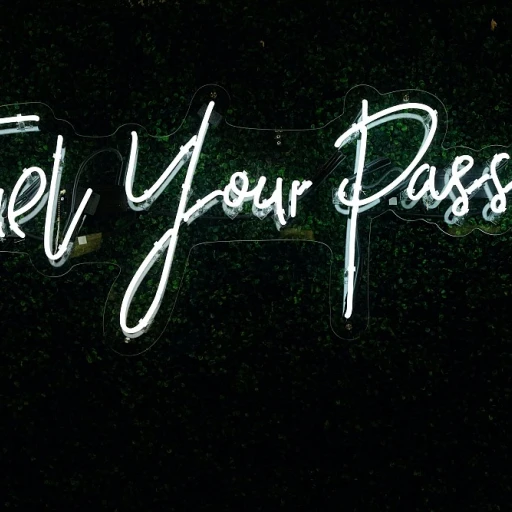
Defining the screening interview
What is a screening interview and why does it matter?
A screening interview is the first real conversation between a candidate and a company during the hiring process. It’s a short, focused discussion—sometimes over the phone, sometimes as a video screening—meant to quickly assess if a candidate could be a good fit for the job and company culture. This step helps hiring managers and recruiters filter out applicants who don’t meet the basic requirements, so they can focus on the most qualified candidates for the next stages.
Screening interviews are not about grilling you with tough interview questions. Instead, they’re designed to check your experience, skills, and sometimes your personality traits. The goal is to see if you match the job description, salary range, and management style, and if your values align with the company culture. Companies use this process to save time and resources, making sure only the best candidates move forward in the interview process.
Screening can happen in different ways: a quick phone call, a pre screening questionnaire, or a video interview. Each method helps the company get a first impression of your communication skills, your understanding of the role, and your motivation for applying. If you’re curious about what screening looks like for specific roles, you can check out this guide to what to expect in a MediaTek product manager interview.
Understanding the purpose and format of screening interviews will help you prepare and avoid common mistakes. In the next sections, we’ll look at why employers rely on screening, what you can expect during the process, and how to make the best impression as a candidate.
Why employers use screening interviews
Why Companies Rely on Screening Interviews
Screening interviews are a practical tool for companies aiming to streamline the hiring process. With a high volume of applications for each open position, hiring managers need a way to quickly identify the most qualified candidates. This initial step helps ensure that only those who meet the basic requirements and align with the company’s needs move forward in the interview process.
- Efficiency: Screening interviews save time for both the company and the candidates. By focusing on key qualifications, skills, and experience, employers can narrow down the pool before investing in more in-depth interviews.
- Consistency: Conducting screening interviews—whether by phone, video, or pre-recorded video screening—allows companies to ask the same set of interview questions to all candidates. This helps create a fairer and more consistent evaluation process.
- Fit and Culture: Employers use screening interviews to assess not just technical skills, but also personality traits, management style, and cultural fit. This early insight can help predict how well a candidate will adapt to the company culture and the specific role.
- Clarifying Expectations: Screening interviews are an opportunity for both sides to discuss the job requirements, salary range, and what the company is looking for in a candidate. This helps avoid mismatches later in the hiring process.
For hiring managers, the screening interview is also a chance to spot red flags early and avoid spending resources on candidates who may not be a good fit. This step is especially important when interview scheduling is tight or when the company is considering whether to schedule interviews back to back. For more on this topic, you can read about the pros and cons of back-to-back interviews.
Ultimately, screening interviews help companies focus on the best candidates, making the overall hiring experience more efficient and effective for everyone involved.
What to expect during a screening interview
What typically happens during a screening interview?
The screening interview is often the first real conversation between a candidate and a company. It’s designed to quickly assess if there’s a basic fit between the candidate and the job requirements. Most screening interviews are conducted by phone or video, making them efficient for both sides. Here’s what you can usually expect:- Brief introduction: The interviewer will likely start by introducing themselves and giving a short overview of the company and the open position.
- Questions about your background: Expect questions about your work experience, education, and relevant skills. The goal is to see if your qualifications match the job description.
- Understanding your motivation: Interviewers often ask why you’re interested in the role and what attracted you to the company. This helps gauge your enthusiasm and cultural fit.
- Clarifying logistics: Topics like your availability, preferred salary range, and potential start date may come up. This helps the hiring manager determine if moving forward makes sense for both sides.
- Assessing soft skills: Some questions might focus on your communication style, management style, or personality traits. These help the company evaluate your experience personality and how you might fit into the company culture.
- Opportunity for your questions: You’ll usually have a chance to ask about the company, the team, or the next steps in the hiring process.
How to prepare for a screening interview
Getting Ready for Your Screening Interview
Preparation is key to making a strong impression during the screening interview. This stage is often your first real interaction with the company, so it’s important to show you’re a qualified candidate who understands the role and the hiring process.- Research the company and position: Take time to learn about the company culture, values, and the specific job requirements. Understanding what the company is looking for helps you tailor your responses and show you’re a good fit.
- Review the job description: Identify the key skills and experience the employer wants. Think about examples from your background that match these needs, especially if the interview will focus on pre screening or video screening questions.
- Practice common interview questions: Screening interviews often include questions about your experience, skills, and why you’re interested in the position. Prepare concise answers that highlight your strengths and show your personality traits.
- Be ready to discuss salary range and availability: Many screening interviews touch on your salary expectations and when you can start. Have a realistic range in mind and be honest about your timeline.
- Test your technology: If it’s a video screening, check your internet connection, camera, and microphone ahead of time. Choose a quiet, well-lit space for the interview to avoid distractions.
- Prepare questions for the interviewer: Asking about the company, management style, or next steps in the interview process shows your interest and helps you assess if the company is the right fit for you.
Common mistakes to avoid
Missteps that can hurt your screening interview
Screening interviews are designed to quickly identify the best candidates for a job. However, even qualified candidates can make mistakes that impact their chances of moving forward in the hiring process. Here are some common pitfalls to avoid:- Not researching the company: Failing to understand the company culture, management style, or what the company does can make it hard to show you are a good fit for the role.
- Unclear communication: Rambling answers or not directly addressing interview questions can make it difficult for the interviewer to assess your skills and experience. Practice concise, relevant responses that highlight your fit for the position.
- Ignoring the job description: Overlooking the requirements and responsibilities of the job can lead to missed opportunities to connect your experience and personality traits to what the company is seeking.
- Being unprepared for basic questions: Screening interviews often include questions about your background, salary range expectations, and why you are interested in the position. Not having clear answers can signal a lack of preparation.
- Poor video or phone etiquette: For video screening or pre screening interviews, distractions, technical issues, or unprofessional settings can leave a negative impression. Test your equipment and choose a quiet, neutral space.
- Not asking questions: Candidates who do not ask about the role, company, or interview process may appear uninterested. Prepare thoughtful questions to show your engagement and curiosity.
- Overlooking follow-up: Not sending a thank you note or email after the interview can be seen as a lack of interest or professionalism.
How screening interviews fit into the overall hiring experience
The screening interview as a gateway
Screening interviews play a crucial role in the overall hiring process. They act as the first filter, helping companies identify which candidates might be the best fit for the job and the company culture. By focusing on key qualifications, experience, and personality traits, employers can quickly determine who should move forward to more in-depth interviews.
Connecting the dots: from screening to final decision
After the initial screening, selected candidates are usually invited to participate in further interviews. These may include technical assessments, panel interviews, or meetings with the hiring manager. Each stage builds on the information gathered during the screening, allowing the company to dive deeper into the candidate’s skills, management style, and cultural fit.
- Pre-screening: Often involves a short phone or video screening to confirm basic qualifications and interest in the position.
- Screening interview: Focuses on clarifying the candidate’s experience, salary range expectations, and motivation for the role.
- Further interviews: Assess technical skills, problem-solving abilities, and alignment with company values.
Why the screening interview matters
For candidates, understanding what screening interviews are and how they fit into the hiring process helps set realistic expectations. It’s not just about answering interview questions; it’s about demonstrating your potential to contribute to the company. For employers, conducting screening interviews efficiently saves time and ensures only qualified candidates progress, making the entire interview process more effective.
Ultimately, the screening interview is more than a formality. It’s a strategic step that shapes the candidate’s experience and the company’s ability to identify the right talent for the position.













